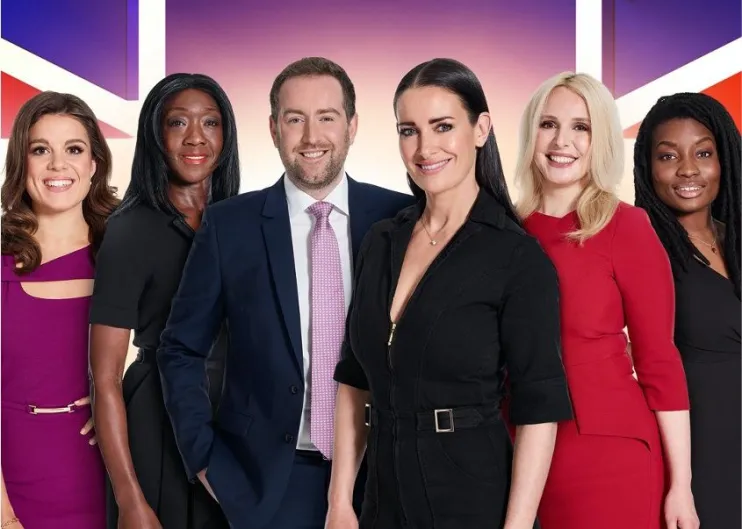News review: Andrew Neil, Nigel Farage and the highs and lows of GB News

As the year draws to a close, we look back at what’s happened along the way. We reflect on events and draw conclusions. It seems quite timely to ask, then, one unforeseen question: what’s happened to GB News? The channel is a little over five months old, and yet it has raised more than a few eyebrows. Tellingly, the controversy is often about its people rather than about the content of its news.
The downfall of the right-wing channel, created with the aim of “doing the news differently”, can be traced back to September, when Andrew Neil resigned. Yes, not even two months after the channel was launched. The ex BBC and Sunday Times journalist was meant to be the face of GB News, yet he left after conducting only eight shows. “This would have killed me if I had carried on”, he later admitted, mentioning the stress of working for a broadcaster that had more than a few technical issues. Presenters on GB news are often left in the dark – quite literally, given the infamous problems with lighting on set.
This month, another resignation has been handed in. Simon McCoy, former BBC and Sky News journalist, has left too. But not to worry, because GB News had already addressed the lack of personnel by bringing in no one less than Nigel Farage. Andrew Neil’s take on this decision is that the channel now resembles a “Ukip tribute band”.
It’s easy to find more than one problem with this decision. Free speech is a key tenant of journalism, ensuring that we don’t give room only to opinions we like. If we did, the news would be biased, and boring. But the objectivity benchmark for broadcasters and papers is different. One would expect the person delivering the news on television to have a vague sense of impartiality – as they’re not writing an opinion column. Nigel Farage doesn’t fit into that picture. Put a far right-wing politician on the evening show – even if you call it a talk show – and you know what to expect.
But even if we believe it’s a good thing to have someone with strong opinions delivering the news, Nigel Farage is simply bad at it. His interview technique is to put answers in his interviewees’ mouths. Last week, when interviewing a Tory MP, he did all he could to make him say that the vote against vaccine passports was a vote of no confidence to Boris Johnson. When the MP kept on saying that it wasn’t, he simply had to agree. Watching that happening live makes you question the authority of the presenter.
Farage’s highlight was his interview with Donald Trump, conducted at the beginning of December at the former US president’s Florida resort. Approximately 190,000 people tuned in, to watch two middle-aged white men agree on basically everything, from how rigged the US election was to how dangerous postal voting is. It’s always interesting when people who have lost blame it on the process being corrupt – like a child losing a football game blames it on the referee.
This is not to downplay the channel. Even its existence alone says a lot: people felt the need to have a Fox News-like broadcaster in the UK and found a market for it. Instead of trivialising it as a failed rightwing experiment, we should ask what it tells us about the direction of politics and society in this country.
Its future however, it’s less than certain, especially as Rupert Murdoch gets ready to launch his new station talkTV. Piers Morgan has been called on stage to be the face of the enterprise. With more funding and a stronger appeal to loyal audiences, talkTV could easily occupy the same niche that GB News is trying to carve for itself.
Ultimately, the public decides where it wants to get the news from. GB News has the right to exist, and the right to thrive if it manages to. For now, however, it seems very far from it – and this should let us breathe a sigh of relief.